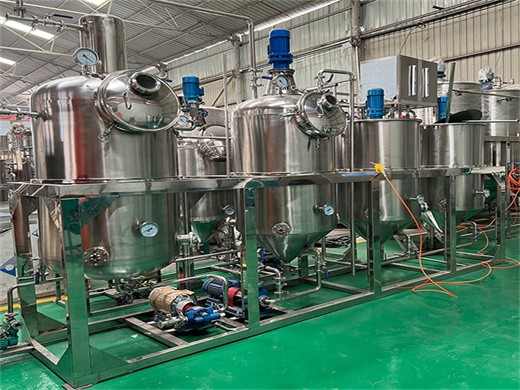Economical and versatile, palm oil has become the world's most widely used vegetable oil. However, its production comes at a heavy environmental cost, especially in Indonesia and Malaysia, the two main producers. Efforts to make its production more sustainable still have a long way to go.

A single palm oil plantation can destroy the forests, watersheds, and forest resources of thousands of Indonesians, leaving entire forest communities to face poverty, many for the first time.[6] Palm oil causes climate change. Rainforests are the earth’s largest sinks of carbon, safely storing the greenhouse gases that cause climate change ...
Get Price
Why is Palm Oil So Bad? Laura Beans. May ... Why is Palm Oil a Problem? Palm oil has become one of the world’s leading causes of rainforest destruction. Unchecked expansion has pushed palm oil plantations into the heart of some of the world’s most culturally and biologically diverse ecosystems and palm oil is among the biggest threats driving iconic wildlife species like the Sumatran ...
Get Price
Palm oil can be produced more sustainably and things can change. The Roundtable of Sustainable Palm Oil or RSPO was formed in 2004 in response to increasing concerns about the impacts palm oil was having on the environment and on society. The RSPO has a production standard that sets best practices producing and sourcing palm oil, and it has the buy-in of most of the global industry.
Get Price
The oil palm tree, Elaeis guineensis, is native to West and central Africa, and commercial plantations are now expanding in the region. If a full-scale boom developed, it could encroach on crucial ...
Get Price
There is no denying that palm oil gets a lot of bad press…and rightly so! There is no other vegetable oil on the planet that shows up in such a vast array of consumer goods, making consumers ...
Get Price
Palm oil is also used more widely in food products, such as cooking oil, shortenings, margarine, and as a feedstock for biofuel, whereas palm kernel oil is primarily used as a raw ingredient within a wide range of consumer products, including soaps, cosmetics, candles, and detergents.
Get Price
The palm oil industry’s largest sustainable certification body has responded by arguing that Norway’s ban could cause unintended consequences, pushing deforestation elsewhere. Darrel Webber, chief executive of the Roundtable on Sustainable Palm Oil (RSPO), told Eco-Business: “We believe that moves such as this stem from good intentions.
Get Price
The palm oil industry’s largest sustainable certification body has responded by arguing that Norway’s ban could cause unintended consequences, pushing deforestation elsewhere. Darrel Webber, chief executive of the Roundtable on Sustainable Palm Oil (RSPO), told Eco-Business: “We believe that moves such as this stem from good intentions.
Get Price